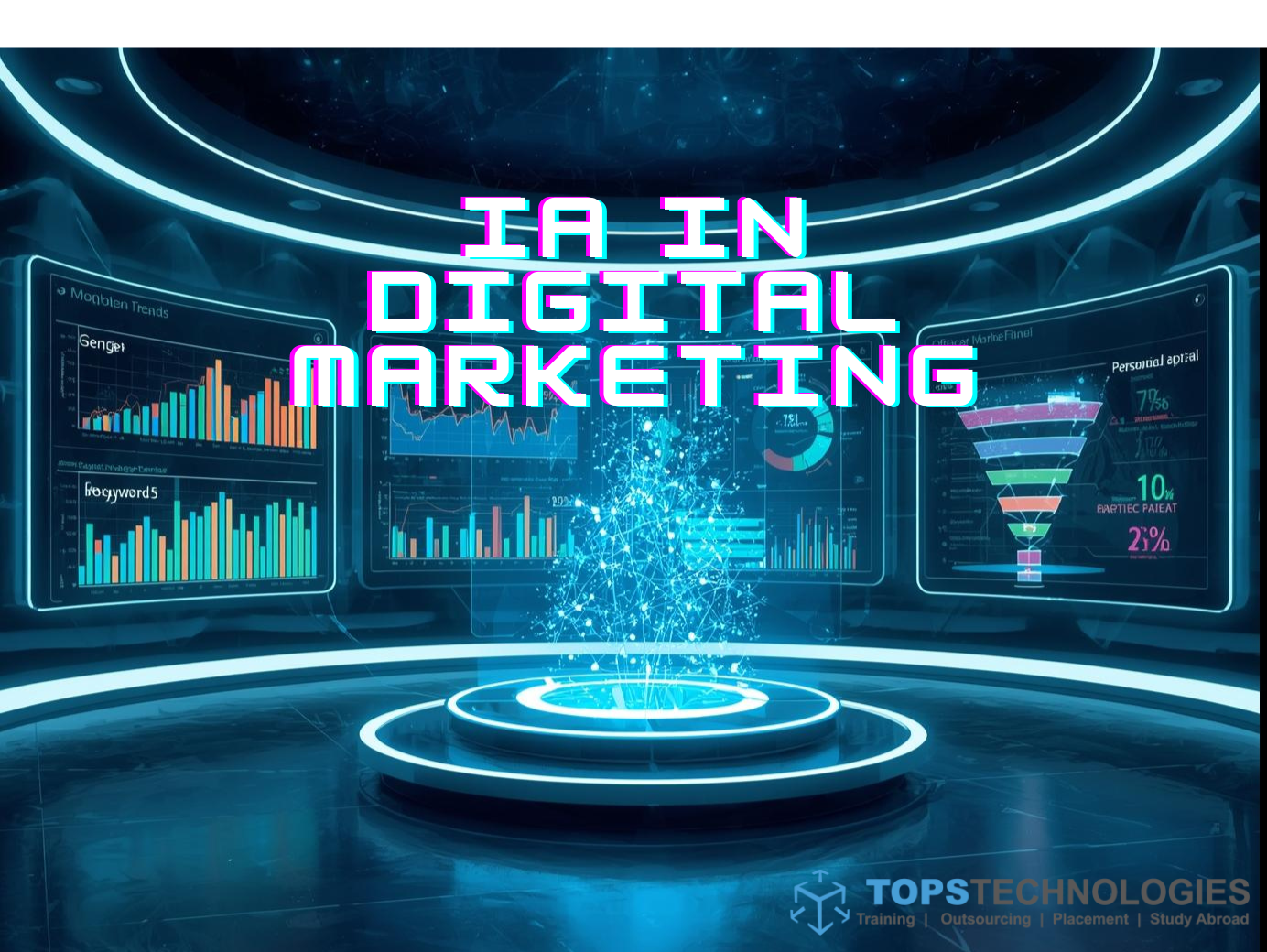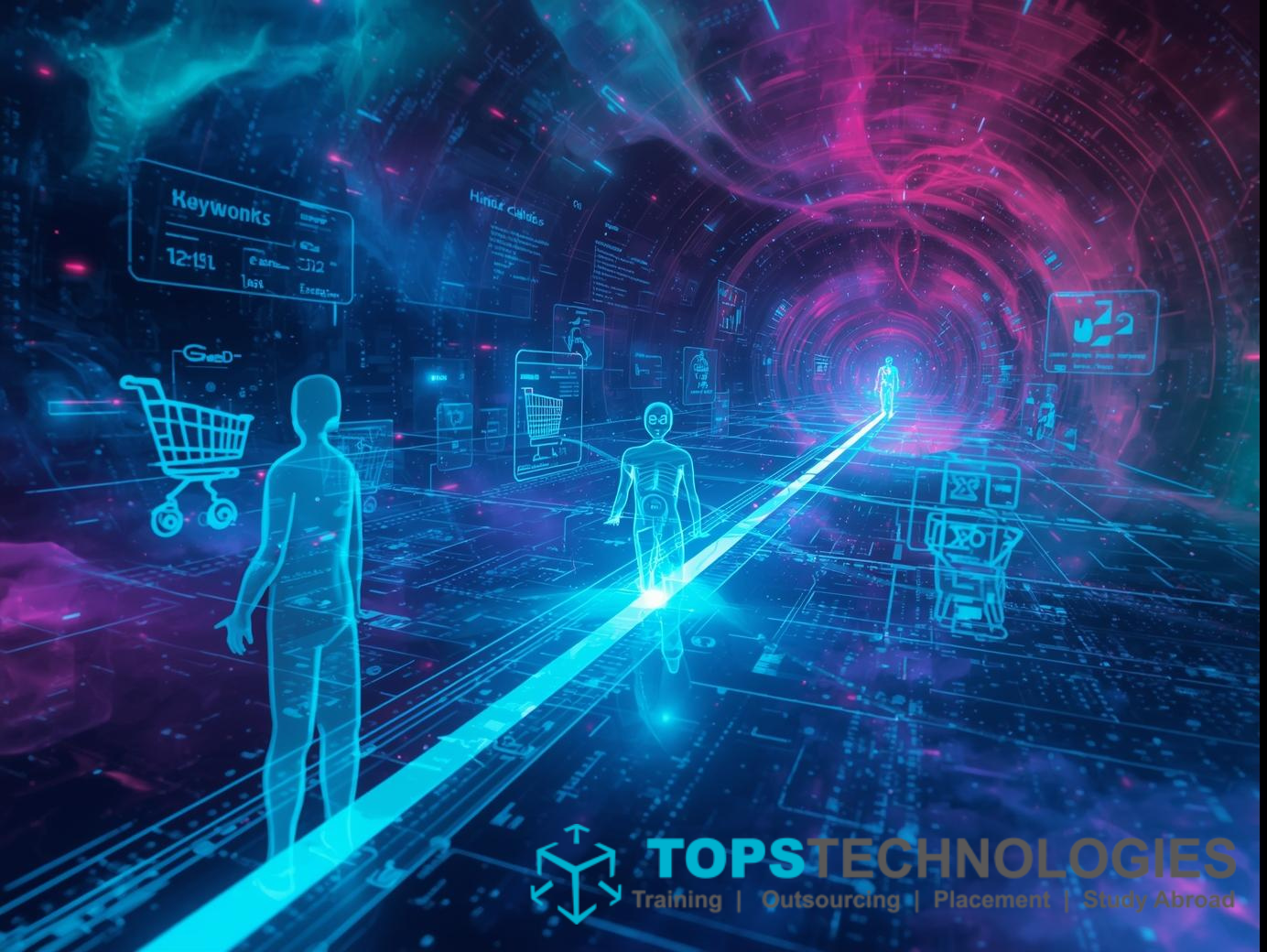Artificial Intelligence (AI) has become one of the most powerful tools in the digital era, and marketing is one of the fields where it’s making the biggest impact. Today, AI in Digital Marketing is helping businesses understand customers better, predict behavior, and automate campaigns with unmatched precision.
If you’re curious about how it works and how it can shape your career or business, here are the 30 most frequently asked questions about AI-powered Digital Marketing, answered in detail.
1. What is AI in Digital Marketing?
AI in Digital Marketing is the use of artificial intelligence, machine learning, and data-driven algorithms to improve marketing activities. It helps businesses analyze customer behavior, understand patterns, predict trends, and automate routine tasks. For example, AI can personalize recommendations on e-commerce websites, optimize ad campaigns in real time, and even assist with content creation.
2. Why is AI in Digital Marketing Important?
AI in Digital Marketing is important because it bridges the gap between customer expectations and business capabilities. Today’s consumers want highly personalized experiences, and AI makes that possible by analyzing massive data sets in seconds. It enables brands to connect with the right audience at the right time, thereby saving costs, improving ROI, and enhancing customer loyalty.
3. How is AI in Digital Marketing Used in Real Life?
Real-life applications of AI-powered Digital Marketing are everywhere. Companies use chatbots for 24/7 customer service, predictive analytics to forecast sales trends, and AI-driven tools to optimize Google Ads. Netflix recommends movies based on viewing history, while Amazon suggests products based on previous purchases—all powered by AI in Digital Marketing.
4. What Are the Benefits of AI in Digital Marketing?
The benefits of AI in Digital Marketing include:
Efficiency: Automating repetitive tasks like customer queries and email scheduling.
Better Targeting: Reaching audiences more precisely.
Cost Savings: Optimizing campaigns to reduce ad waste.
Improved Decision-Making: Turning complex data into actionable insights.
Enhanced Customer Experience: Offering personalized recommendations and real-time support.
5. Can AI in Digital Marketing Replace Human Marketers?
No. While AI in Digital Marketing is powerful, it cannot replace the creativity, empathy, and strategic thinking of human marketers. AI can analyze trends, suggest strategies, and even create content outlines, but human expertise is required for storytelling, brand positioning, and emotional connection. In the future, marketers who combine AI tools with creativity will be most successful.

6. How Does AI in Digital Marketing Help with Customer Targeting?
AI in Digital Marketing collects data from browsing history, social media activity, purchase patterns, and demographics to build detailed customer profiles. This helps businesses deliver personalized ads and campaigns. For example, instead of showing generic promotions, AI ensures that each customer sees offers tailored to their preferences, which increases engagement and conversion rates.
7. How Does AI in Digital Marketing Improve Content Creation?
AI-powered Digital Marketing tools assist in brainstorming topics, optimizing blog titles, improving readability, and suggesting trending keywords. Platforms like Jasper AI and Grammarly enhance content quality, while tools like SurferSEO suggest improvements for ranking higher on search engines. However, human writers are still needed to add originality and creativity.
8. What Role Does AI in Digital Marketing Play in SEO?
AI in Digital Marketing makes SEO smarter by analyzing search intent, identifying high-value keywords, and predicting future trends. Tools powered by AI can analyze competitors, detect content gaps, and optimize technical elements like meta tags. This allows businesses to create content that aligns closely with what users are actually searching for.
9. How Does AI in Digital Marketing Enhance Social Media?
AI in Digital Marketing enhances social media by studying engagement patterns, scheduling posts at the best times, and analyzing audience behavior. For instance, Instagram algorithms powered by AI show users posts they are most likely to interact with. Brands can use these insights to increase visibility, run better ads, and create content that resonates.
10. What Are the Applications of AI in Digital Marketing Analytics?
AI-powered analytics go beyond basic reporting. They provide predictive insights, detect trends, and highlight what’s working in a campaign. For example, Google Analytics with AI can show which channels drive the highest ROI. These insights help marketers allocate budgets efficiently and design more effective strategies.
11. How Do Businesses Use AI in Digital Marketing for Email Campaigns?
AI in Digital Marketing improves email campaigns by customizing subject lines, optimizing delivery times, and segmenting audiences. For example, AI can identify which users are more likely to open emails in the morning versus the evening. Personalized email flows created with AI tools have higher open and click-through rates compared to traditional bulk emails.
12. What Skills Are Needed to Work in AI in Digital Marketing?
Professionals need a blend of marketing knowledge and technical skills, such as SEO, data analysis, familiarity with AI tools, and campaign management. Learning platforms like TOPS Technologies offer specialized Digital Marketing Courses where you can gain hands-on experience with AI-powered marketing strategies.
13. How Does AI in Digital Marketing Work with Paid Advertising?
AI in Digital Marketing helps optimize ad campaigns by analyzing large amounts of data. It automatically adjusts bidding strategies, chooses the best ad placements, and ensures ads reach users most likely to convert. This makes paid advertising campaigns more effective and budget-friendly.
14. What Are the Tools for AI in Digital Marketing?
There are several tools available, such as:
Chatbots (Drift, Intercom): Customer support.
Analytics (Google AI, HubSpot): Performance tracking.
Content (Jasper AI, Copy.ai): Content optimization.
Ad Optimization (Albert AI): Smart ad placement.
Each tool focuses on making campaigns more intelligent and data-driven.
15. How Does AI in Digital Marketing Help in Customer Service?
AI-powered chatbots and voice assistants have redefined customer service. They provide quick, personalized, and consistent responses to common queries, reducing wait times. For complex issues, they escalate to human agents. This improves customer satisfaction and helps businesses save time and resources.
16. What Are the Challenges of AI in Digital Marketing?
Challenges include high setup costs for advanced AI tools, the need for skilled professionals, and concerns about data privacy. Some businesses also risk losing the “human touch” if they rely too heavily on automation. Striking a balance between AI-powered efficiency and human creativity is essential.
17. How Affordable Is AI in Digital Marketing for Small Businesses?
While advanced AI tools can be expensive, many affordable options are available for small businesses. Platforms like Mailchimp, Canva, and free chatbot solutions provide AI-driven features at low or no cost. These tools help startups and small businesses compete with larger players without huge investments.
18. How Can AI in Digital Marketing Improve ROI?
AI in Digital Marketing improves ROI by eliminating guesswork. It ensures that campaigns are targeted, budgets are optimized, and efforts are directed toward the right audience. Businesses can measure performance in real time and make adjustments that increase profitability.
19. What is the Future of AI in Digital Marketing?
The future of AI-powered Digital Marketing includes hyper-personalized ads, voice search optimization, automated video content, and even AI-generated influencers. Businesses that adopt these trends early will enjoy a strong competitive advantage.
20. How Does AI in Digital Marketing Impact Customer Experience?
AI makes interactions seamless and personal. From customized product recommendations to real-time support, AI ensures that customers feel valued. This builds stronger relationships, enhances brand loyalty, and leads to repeat business.
21. How Can Beginners Learn AI in Digital Marketing?
Beginners can start by learning the basics of marketing and gradually moving into AI-powered tools. Structured courses are the best way to build expertise. Institutes like TOPS Technologies offer training programs with practical exposure to real-world projects, making learning hands-on and career-ready.
22. What is the Role of Machine Learning in AI in Digital Marketing?
Machine learning helps AI in Digital Marketing improve with time. It learns from past data and adapts strategies automatically. For instance, if customers stop engaging with certain ads, machine learning algorithms adjust campaigns to deliver better results.
23. How Does AI in Digital Marketing Enhance Personalization?
AI creates hyper-personalized experiences by tailoring ads, emails, and content to each user’s preferences. For example, Spotify uses AI to generate personalized playlists, while e-commerce websites show products based on browsing history. This level of personalization increases engagement and sales.
24. How Safe Is AI in Digital Marketing in Terms of Data Privacy?
The safety of AI in Digital Marketing depends on how businesses handle data. Companies must comply with regulations like GDPR and ensure customer data is stored securely. Transparent policies and ethical practices are essential to build trust with users.
25. What Are the Limitations of AI in Digital Marketing?
Limitations include a lack of human creativity, dependence on accurate data, and potential ethical issues in data use. Over-automation may also lead to robotic communication that feels impersonal to customers
26. How Does AI in Digital Marketing Support Predictive Analytics?
AI analyzes past data and identifies patterns to forecast future customer behavior. Predictive analytics helps businesses anticipate customer needs, plan better campaigns, and optimize inventory in e-commerce.
27. How Can AI in Digital Marketing Help E-commerce?
E-commerce businesses rely heavily on AI-powered Digital Marketing. From personalized recommendations and customer support chatbots to fraud detection and dynamic pricing, AI improves every stage of the customer journey. This not only boosts sales but also improves customer satisfaction.

28. What Are the Career Opportunities in AI in Digital Marketing?
Career options include AI Marketing Analyst, SEO Specialist, Data-driven Campaign Manager, and AI Strategist. With more companies adopting AI, professionals trained in AI in Digital Marketing are in high demand. TOPS Technologies AI Training Courses help students and professionals build these skills and unlock career opportunities.
29. How Does AI in Digital Marketing Benefit Students and Professionals?
Students gain exposure to emerging technologies, while professionals can upgrade their skills for better career opportunities. With AI becoming a core part of marketing, those with expertise in AI-powered Digital Marketing stand out in the job market.
30. Where Can I Learn More About AI in Digital Marketing?
For an academic overview of AI, explore Wikipedia’s page on Artificial Intelligence Marketing which provides detailed insights into history, concepts, and applications of AI.
Conclusion
AI in Digital Marketing has already become a cornerstone of modern business strategies. From automating tasks to creating personalized campaigns, AI-powered tools offer endless opportunities. However, human creativity and innovation remain irreplaceable.
If you’re looking to master AI in Digital Marketing and build a future-ready career, enroll at Digital Marketing Course at TOPS Technologies. With expert-led Digital Marketing Courses and hands-on AI Training Programs, TOPS equips you with the skills to thrive in this rapidly evolving field.







